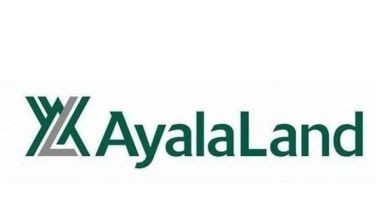Hong Kong opens doors for financial cooperation with public, private sectors in Philippines
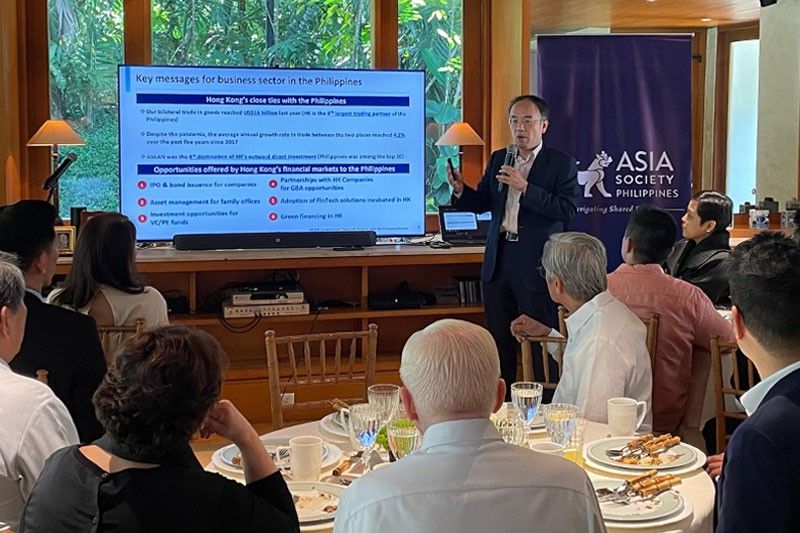
MANILA, Philippines — While it is a small city, Hong Kong is a force to be reckoned with in the global financial market.
At present, it has already reached $4.6 trillion in assets under management (AUM) alone, Hong Kong’s Secretary for Financial Services and the Treasury Christopher Hui told Philstar.com in an exclusive interview. The amount, which is 12 times of its gross domestic product, recorded a 2% year-on-year increase.
Citing a recent survey, he added that 65% of these AUM comes from non-local investors.
Hui, who visited the Philippines from September 26 to 29 to attend his first person-to-person Annual Meeting of Manila-based Asian Development Bank, encouraged Filipino individuals and organizations to take advantage of Hong Kong’s financial services.
According to him, Hong Kong can service individuals looking for investment vehicles to put their money to, and companies planning to raise fund for business development, merges and acquisitions, among others.
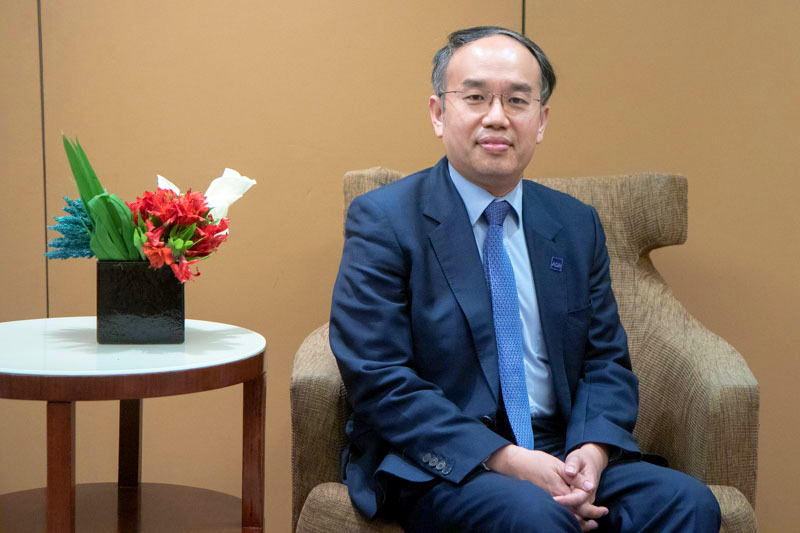
“With a broader choice, they can really pick and choose in terms of what kinds of solutions or investments options that they want and what suit them best. The sophistication of our financial market is sufficient as to allow their multiple choices depending on what objectives they want to achieve,” Hui said.
Hong Kong’s capital markets, Hui explained, is also something that Filipino companies can tap into. “Right now, if you are a Philippine company and you get listed in Hong Kong, you will not just tap into the liquidity in Hong Kong (stock) market but also possibly in China,” he said.
Cooperation with the Philippine government is also highly welcomed.
During his four-day stay, Hui also met with different officials of the Philippine government, including Senate President Juan Miguel Zubiri, Bangko Sentral ng Pilipinas Governor Felipe Medalla, Foreign Affairs Undersecretary Jesus Domingo and Finance Undersecretary Mark Joven. They held dialogues about Hong Kong as an international financial center (IFC) today and in the future.
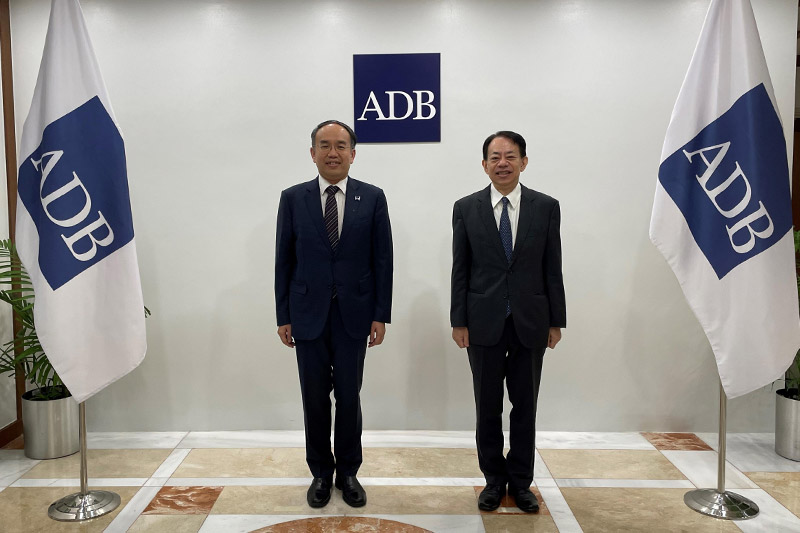
At those meetings, Hui shared that the Philippine government can take advantages of Renminbi (RMB) as an emerging currency for bond issuances.
As inflation continues in the US, interest rates are on a rising trend. This, he said, makes RMB a good alternative in terms of offering a lower cost of funding for bond issuances.
Of the offshore RMB transactions in the world, 75% are being processed in Hong Kong, making it the largest global offshore RMB business hub.
“It’s quite telling of how Hong Kong as a tiny dot in the world is serving the broader Asian corporate world in terms of their bond issuances and financial needs,” Hui remarked.
Resilience and adaptability amid pandemic
Hong Kong as an IFC also remains to be very resilient during the pandemic.
“Despite the so-called restrictions that we have in place, and now that we have relaxation to restore international connectivity. Overall, the financial market in Hong Kong has proven to be very resilient. We are talking about the equity market, the bond market, so on and so forth,” Hui said.
Citing government data, Hui said financial services still make up 23% of Hong Kong’s GDP. This is possible because most financial operations in the city are already done online. Meanwhile, their people were able to respond and adapt, immediately to the change.
Another factor is Hong Kong’s free flow of capital. “People can put their money in and get their money out. That really is a distinguishing factor in our success as an IFC.”
Last but not the least is its international standards in its operations. “We uphold the rule of law and also at the same time, the way we do business is very much internationally recognized. We also have world-class financial regulations in such a way that people see us a very credible platform to put their money in,” he said.
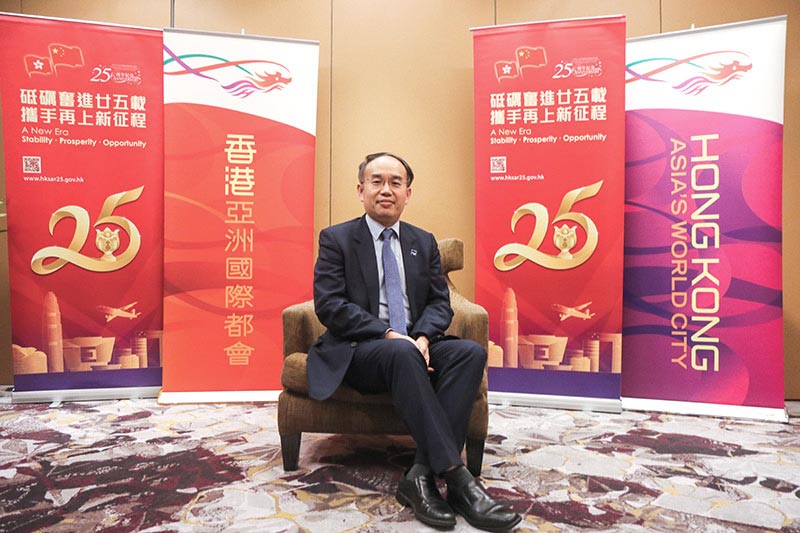
Expertise in fintech and green finance
Beyond the equity and bond markets, Hui said that finance can also be used “as a means to improve the social or general wellbeing of the community.”
Hong Kong, for its part, is offering its expertise in fintech and green finance, which are for long-term and more lasting developments.
According to Hui, Hong Kong already has 600 fintech companies and counting. “We have highly entrepreneurial people, and also people who are deeply connected to the financial markets. It’s a perfect breeding ground for fintech development.”
He believed Hong Kong’s fintech companies allow and adopt their solutions, inventions and innovations that may be relevant and useful to the Philippines. These can be in transportation and logistics, which would help link up markets in the archipelago, or in financial services to address the demand of young and tech-savvy population.
On green finance, Hui asserted Hong Kong’s commitment to carbon neutrality by 2050, with a roadmap already in place to get the economy and society help achieve it.
For him, ESG (environmental, social and governance), is an evolving concept. It’s not just about getting green bond and loans, and using the proceeds from that for green projects. There is now also the concern of green washing.
“Some projects may pretend to be green but they can be brown or light brown. The challenge for us is, of course, more disclosure to make sure that the investors and public would know how the proceeds from green bonds are being applied,” he noted.
In this regard, Hong Kong can share its knowledge and best practices on how to make green finance an integral part of corporations and business, and embedding it to their company strategies down to their daily operations.
Ultimately, for Secretary Hui, adopting green finance is crucial to help mitigate the effects of the pandemic and climate change as these now directly impact the lives of nearly everyone.
- Latest
- Trending

























